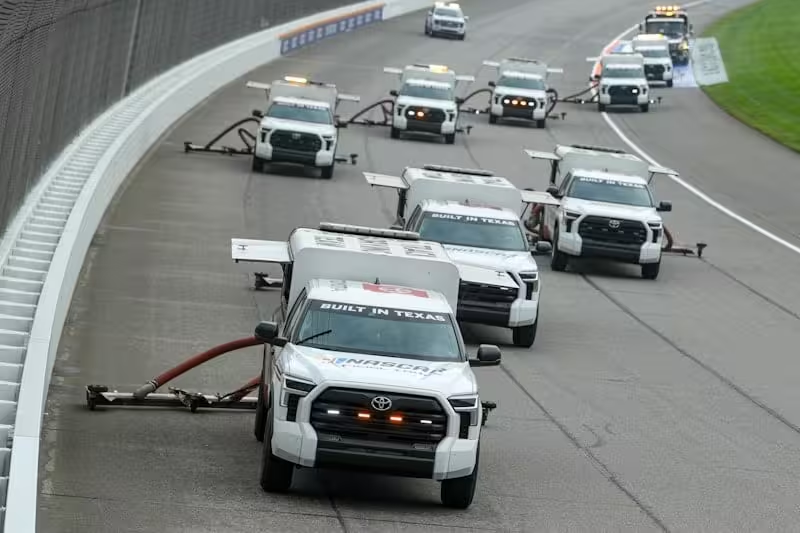As the rain fell over Michigan International Speedway, racecars sat on pit road with drivers and crews hoping for enough dry skies to get the Firekeepers Casino 400 in between ran showers on Sunday afternoon (Aug. 18).
Without lights at MIS, the window quickly closed, leaving NASCAR to postpone the bulk of the race (stage one had just ended before the rains came for the third time Sunday) to Monday (Aug. 19).
Racing on Monday doesn’t make anyone happy. Many of the fans with tickets can’t stay an extra day. Teams with an already tight turnaround time to get cars to Daytona International Speedway for next week’s action now lose a full day. Television loses viewers and fans at home miss out on watching because many have to work.
So everybody loses. And it’s nobody’s fault … mostly. Kind of.
With so many of the summer’s races being affected by weather, it sometimes seems like an endless loop of delays or shortened events.
While it looks like Mother Nature is not a NASCAR fan, NASCAR and its television partners are also a little bit of the problem.
The insistence on later-afternoon or evening start times is at odds with typical summer weather in much of the country. Mid-to-late afternoon is when showers and storms tend to spin up. There’s a good reason the summer race at Daytona used to start before noon: It beat the almost daily Florida thunderstorms. This week at MIS, had the race started an hour or an hour and a half earlier, fans would have gotten to see a lot of racing and teams would be headed back to Charlotte to get ready for next week instead of spending an extra night in a Michigan hotel.
When you look at the start times of many of the rain-affected races in recent years, there’s a pattern: A lot of those races could have been official on the scheduled day if they’d started at the once-usual 12:30-1:30 afternoon post times. Ratings were at an all-time high well before those start times changed to later hours, so it’s hard to argue the TV rating angle.
Rearranging the schedule can only go so far. It’s already 36 weeks long with two exhibition races tacked on and just one scheduled week off most years — unless the Olympics happen to be going on, then it’s two weeks.
There’s only so much racing that can be packed in from early February through Thanksgiving. There is a finite number of weekends in the spring and fall. You can only move so many summer races out of the summer…
Click Here to Read the Full Original Article at …

